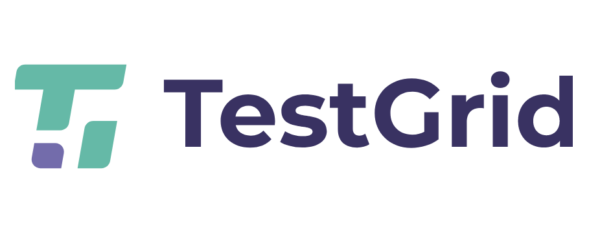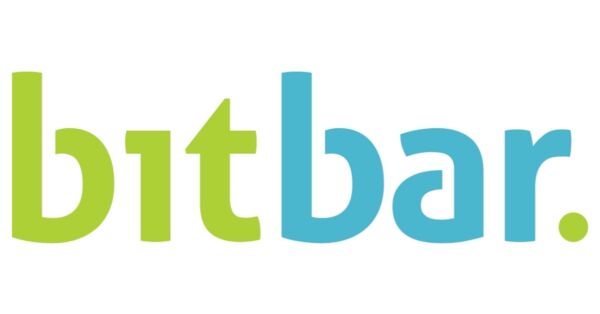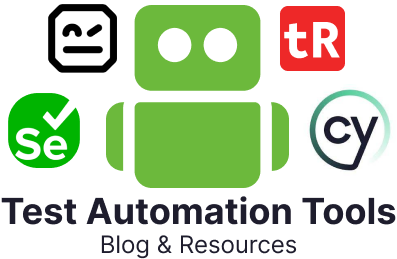Cross-Browser Testing Tools
A web app might look fine in one browser but broken in another. Testing it everywhere shows how things really work. Different tools handle code in their own way. That means what runs smoothly on Chrome could fail on Safari. Checking across platforms catches glitches early. A button that clicks easily on Windows may not respond on a phone. Issues like slow loading or misaligned layouts pop up too. Spotting these ahead of time saves trouble later. Each device can behave unexpectedly. Even small visual shifts matter when they confuse someone.
Why Cross-Browser Testing Still Matters
- Ensuring a consistent user experience across browsers
- Stopping glitches that cost money. Helping people who use old browsers or rare gadgets
- Checking how things work in everyday situations before rolling them out
Here are 10+ of the best cross-browser testing tools for your team to consider in 2026.

testRigor
One of the most powerful generative AI-driven platforms for software testing, testRigor features support for test writing in plain English and cutting-edge technology that learns from how users interact with your web or mobile application. It is designed to make end-to-end testing faster and more accessible, even for those without coding skills. The platform supports web, mobile (hybrid, native), API, desktop apps, mainframes, and browsers.
You can easily test different web and mobile apps across browsers, run your tests in parallel, do live testing on browsers, and manage and execute your cross-browser tests from a single interface. This tool integrates with other CI/CD tools, device farm platforms, and other infrastructure-providing platforms that can help extend your testing efforts.
testRigor takes optimization and efficiency to new levels, as tests can be quickly adapted based on insights from AI-based analysis of real user behavior on your software application. Thanks to these advantages, testRigor is one of the best options around when it comes to end-to-end testing and scaling.
You can utilize testRigor’s AI features like visual testing, context-based testing, intelligent element locations, self-healing capabilities, and generative AI-powered test generation to simplify your cross-browser testing efforts. Use testRigor to test graphs, images, chatbots, LLMs, Flutter apps, form filling, and many more such untestable scenarios. What makes testRigor different is its use of everyday language for creating tests. This cuts down on upkeep needs while opening up browser testing across platforms. Even those without coding skills can take part thanks to how straightforward it is.
In terms of pricing, testRigor provides a free public open-source option and a couple of paid plans to support your requirements.

BrowserStack
BrowserStack is a cloud-based platform that grants customers access to more than 3,000 devices and browsers. It is a prominent testing platform for developers and QA testers. It eliminates the need for maintaining an in-house device lab and simplifies the process of ensuring your applications work seamlessly across various environments.
You can manually test your website on any of the available browser-OS combinations in a real-time, interactive session through your web browser. This is useful for exploratory testing, debugging, and visually inspecting how your application renders and behaves.
BrowserStack seamlessly integrates with popular test automation frameworks like Selenium, Cypress, Playwright, Puppeteer, and WebDriverIO. Thus, you can run your existing automation scripts on BrowserStack’s grid of real browsers without needing to configure or maintain the infrastructure. Visual tests for websites can also be automated with Percy. With BrowserStack, teams can test on countless actual phones and web browsers. This tool works well when fixing issues by hand or running tests across different platforms automatically.
To further facilitate your SDLC, BrowserStack also integrates with prominent CI/CD tools, as well as test automation frameworks, and a range of other tools. BrowserStack is primarily a paid, subscription-based service. They offer various plans tailored to different needs, team sizes, and testing requirements.

Headspin
Focused on AI-based testing and facilitating DevOps collaboration, Headspin allows for remote testing across browsers using thousands of real devices via virtual cloud access, along with real performance data like load testing on real environments.
HeadSpin offers integrations with Appium and Appium Inspector and Selenium, and is compatible with Xcode, Android Studio, Flutter, Charles Proxy, Cucumber, Espresso Android, TestNG, Puppeteer, Playwright, Jira, Slack, Jenkins, and more. It also offers AI-driven testing insights to identify and prioritize application issues and areas that need improvement.
A key differentiator of Headspin is its focus on performance. During cross-browser tests, it captures detailed performance metrics like page load times, network latency, and resource consumption for each browser, allowing you to identify browser-specific performance bottlenecks.
When it comes to pricing, Headspin offers a free trial and various pricing plans.

TestGrid
Boasting low-code or no-code authoring and management of test cases, TestGrid is another prominent testing platform with a cloud-based platform that can access real devices. Since it offers low-code and no-code authoring of test cases, TestGrid can be used to promote collaboration across both technical and non-technical team members alike for both manual and automated testing.
TestGrid integrates with popular open-source test automation frameworks like Selenium. You can execute your existing Selenium scripts on TestGrid’s browser grid without significant changes. They also provide their own scripting interface, which might simplify automation for some users. When it comes to integrations, TestGrid has integrations with Jira, Slack, Asana, and other common tools.
TestGrid offers a freemium plan and many paid plans with different features based on your needs.

Mabl
Well-suited for automating testing without scripts, Mabl is a user-friendly cross-browser test automation tool with support for performance regression testing and visualized test outputs. With the ability to fetch data based on performed actions and self-healing machine learning functionality, Mabl is able to reduce the time and effort involved by facilitating code writing without the need for scripts.
Also featuring a browser plug-in, Mabl is lightweight and provides the added benefit of monitoring platform performance and network spikes. Mabl also features integrations with common services like Jenkins, Slack, Azure DevOps, and more. You can make use of Mabl’s AI features to create, run, and maintain test cases.
In terms of pricing, Mabl offers a free trial and plans named startup, growth, and enterprise, but requires reaching out to sales to get a quote for the actual price.

Sauce Labs
A cloud-based automated testing service, Sauce Labs is geared towards teams using continuous integration workflows, along with professional services and training to help teams ensure they’re getting set up and running with the product properly. A fresh start each time reveals how SauceLabs fits teams tackling big test loads. Running tests side by side speeds up results, one piece at a time. Clear feedback follows every run, showing exactly what worked or stalled. Connections to pipelines run quietly behind the scenes, holding everything together without fuss. Scale comes naturally when each part knows its role.
Featuring a simple, intuitive UI, Sauce Labs allows for automating application testing on cloud-based devices across multiple browsers, emulators, and simulators. Sauce Labs also has the ability to provide access to testing on real devices. It seamlessly integrates with popular open-source test automation frameworks like Selenium, Cypress, Playwright, Puppeteer, and WebDriverIO. You can then run your existing automation scripts on Sauce Labs’ secure and scalable grid of real browsers without needing to manage the underlying infrastructure.
Sauce Labs uses AI to analyze test failures, identify patterns, and provide more insightful error reporting, potentially pinpointing browser-specific issues more effectively. It is primarily a paid, subscription-based service. They offer various pricing plans tailored to different testing needs, team sizes, and usage volumes.

BitBar
Published by SmartBear, BitBar features testing on real devices and browsers for both web and mobile application testing. BitBar facilitates running both manual and automated tests via a cloud platform, with both Selenium and Appium tests. It also features an AI Testbot specifically for mobile apps.
BitBar supports most native mobile test automation frameworks as well as Selenium-based web app testing frameworks. It is also compatible with various programming languages, including Python, Java, C#, Ruby, and JavaScript. As far as pricing goes, BitBar offers different paid plans that include various degrees of advanced features to suit your needs.

Telerik Test Studio
Particularly strong for responsive applications with flexible form factor coverage, Test Studio by Telerik facilitates the automation of web and desktop application testing with a robust suite of features that include the recording and execution of visual tests, cross-browser testing, and automated test runs across browsers that include Chrome, Firefox, Chrome Headless, and Chromium-based Edge.
Recording and executing tests is easy with Test Studio. Its point-and-click interface allows for the creation of new automated tests and the automation of existing manual tests. Test Studio also makes simulating different devices and form factors easy, without the need for repetitive manual tasks or device switching. It also offers easy-to-use configurations for various screen sizes.
Test Studio is also suitable for teams using CD/CI, integrating with all of the prominent CD/CI tools like Jenkins, Azure DevOps, Jira, TeamCity, Bamboo, CircleCI, and so forth. Being a commercial tool, it typically provides a free trial period that allows you to evaluate the full functionality of the tool before committing to a purchase.

Selenium Box
Geared towards large organizations where security sensitivities must be considered and managed, Selenium Box is an Enterprise Selenium Grid designed to run behind a corporate firewall and used in the banking, finance, medical, and other similar fields. Fully managed, maintenance-free, and highly scalable, Selenium Box can be run on-premise or in a corporate cloud, and supports both web and mobile application testing.
As you would expect with a solution designed for secure corporate environments, Selenium Box can run without tunnels or outside access required, and provides enterprise integrations supporting LDAP, CROWD, and similar common services. As a product geared towards the enterprise market, Selenium Box provides custom pricing only after understanding the specific needs of the customer.

Playwright
Starting off, Playwright comes from Microsoft as a tool to control browsers automatically. This one works across Chromium, Firefox, and WebKit using just one interface. Instead of needing extra code, actions wait naturally until elements are ready. Tests can run at once beside each other without breaking things. Because it handles fast-changing websites smoothly, teams often use it in automated workflows. Since everything stays stable even when apps shift quickly, checking multiple browsers fits neatly into deployment systems.
Perfect if your team builds today’s web apps and wants quick, solid browser tests without complex setup.

Cypress
JavaScript powers Cypress, a tool built for full workflow tests that deliver quick results while coding. Its testing interface feels natural to developers, showing issues as they happen. Mostly aimed at Chrome-like browsers, though it works with Firefox too. Testing across more browsers becomes possible by linking up with online platform services. Speed and instant insight shape how this framework handles checks from start to finish.
Great choice when your team works mostly with JavaScript and wants smooth testing that keeps up with fast changes. A solid fit if writing code quickly matters most.

Browserling
Starting off, Browserling gives instant access to various browsers right from your screen. Instead of installing anything locally, you just open it and go. This tool works well when checking how websites look across different versions. Think of it as hopping into real browsers anytime, no setup needed. Most people use it to click around freely or spot visual glitches fast. Testing layouts becomes simpler because each environment runs live. With Browserling, verifying functionality in older IE or Chrome feels less like work.
Great choice when you need hands-on checks, want to dig into features freely, or quickly verify how things run across browsers.
Key Features to Look For
- Support for major browsers and versions
- Real device and OS coverage
- Automated and manual testing options
- Parallel test execution, CI/CD, and automation framework integrations
- Test reports, logs, and debugging artifacts
When Real User Testing Makes Sense
Though automated tools handle many browser checks, actual people using sites reveal how well things work in real situations. Uncommon gadgets or spotty internet often expose issues machines miss. Seeing genuine reactions helps judge if designs make sense locally. Sometimes the quirks only show up when someone interacts naturally.
Conclusion
There are a lot of cross-browser testing tools available to software teams in 2026. When making the right choice, be sure to consider your needs, like budget, features, and sustainability. As you’ve seen, the range of pricing plans, types, and features available is so broad that it’s worth spending a little time comparing your options. Now that you’ve got this set of handy information available to you, hopefully, you’ll be well-positioned to make the right choice for your team.
